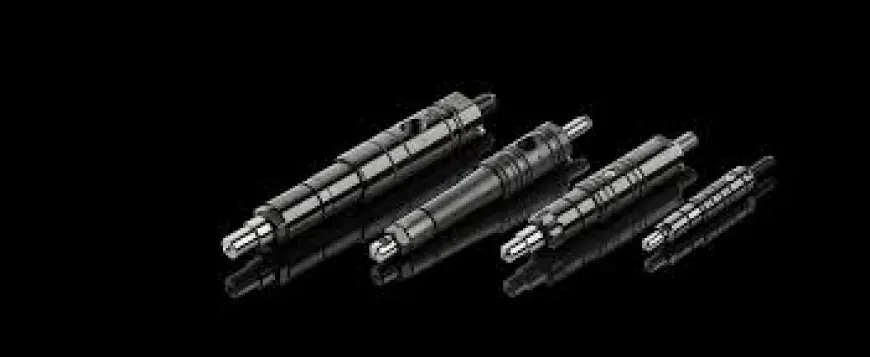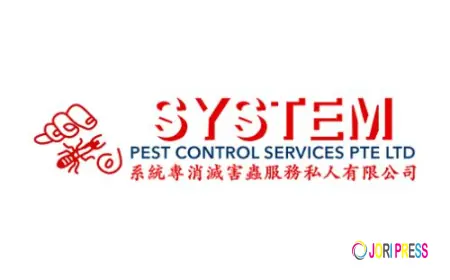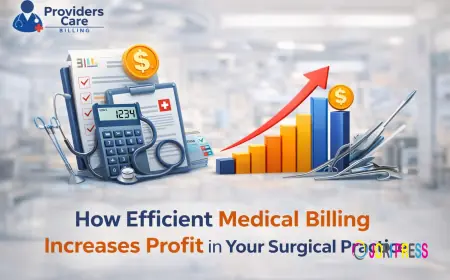Global Automotive Injector Nozzle Market 2030 Overview
The automotive industry is witnessing a growing shift towards direct injection systems due to their ability to provide precise control over fuel delivery and optimize combustion.

According to TechSci Research report, “Automotive Injector Nozzle Market - Global Industry Size, Share, Trends, Competition Forecast & Opportunities, 2030F,” the Global Automotive Injector Nozzle Market was valued at USD 5.67 Billion in 2024 and is expected to reach USD 8.39 Billion by 2030, growing at a CAGR of 6.82% during the forecast period. This dynamic market is shaped by the global shift towards more fuel-efficient, environmentally conscious vehicles, prompting a wave of innovation and technological refinement in injector nozzle design.
Industry Key Highlights
The automotive injector nozzle market plays a crucial role in the performance of internal combustion engines. Injector nozzles directly impact fuel delivery accuracy, combustion efficiency, and overall vehicle emissions. As global emission regulations become more stringent, the role of the injector nozzle is more critical than ever.
- Market Size (2024): USD 5.67 Billion
- Projected Market Size (2030): USD 8.39 Billion
- CAGR (2024–2030): 6.82%
- Key Market Segments: Fuel Type (Gasoline, Diesel), Technology (Port Fuel Injection, Direct Injection), Vehicle Type (Passenger Cars, Commercial Vehicles)
The steady growth is attributed to a combination of consumer demand, evolving government policies, and continual investment in R&D by leading automotive suppliers.
Download Free Sample Report: https://www.techsciresearch.com/sample-report.aspx?cid=21453
Emerging Trends in the Automotive Injector Nozzle Market
1. Precision and Smart Injection Systems
One of the most notable trends is the shift towards precision fuel injection systems. This includes the adoption of piezoelectric injectors and multi-hole nozzles that enhance atomization, improve fuel distribution, and minimize wastage. These features are increasingly standard in high-performance engines and hybrid vehicles.
2. Integration with Hybrid and Plug-In Hybrid Systems
As electrification continues to dominate the automotive industry, traditional fuel injection systems are being adapted for hybrid configurations. Specialized nozzles compatible with smaller, turbocharged gasoline engines are emerging to serve hybrid vehicles that rely partly on internal combustion.
3. Lightweight and Durable Materials
Manufacturers are investing in materials like high-strength alloys and ceramic composites to build lighter, more corrosion-resistant nozzles. These innovations not only improve performance but also extend product lifecycle and reduce maintenance needs.
4. Regulatory Push for Emission Reductions
Europe, China, and parts of North America are enforcing strict carbon emission limits, prompting automakers to innovate in combustion technologies. Injector nozzles that support cleaner combustion processes are now essential in complying with Euro 6d, Bharat Stage VI, and other emission norms.
5. 3D Printing and Additive Manufacturing
The use of 3D printing is gaining ground in prototype development and even final manufacturing of injector nozzles. It enables intricate internal geometries that enhance fuel spray patterns, reduce turbulence, and enable precise delivery.
Market Drivers
Growing Demand for Fuel Efficiency
Global consumers are increasingly opting for vehicles that offer higher mileage and lower fuel consumption. Injector nozzles play a pivotal role in ensuring this by enabling more accurate fuel metering and efficient combustion.
Rising Hybrid and Electric Vehicle Production
While EVs dominate headlines, hybrid vehicles still use combustion engines where efficient fuel injection remains key. As hybrid models proliferate, demand for tailored nozzle designs increases accordingly.
Technological Advancements
Recent innovations such as gasoline direct injection (GDI) and turbocharged engines have increased the requirement for high-performance injector nozzles. Manufacturers that offer customizable and high-pressure nozzles are gaining a competitive edge.
Expansion of Global Automotive Production
Regions like Asia-Pacific, particularly China and India, continue to expand their automotive manufacturing base. This growth stimulates the demand for automotive injector systems, both OEM and aftermarket.
Stringent Emission Standards
Governments are mandating lower tailpipe emissions, necessitating precision injection systems that reduce unburned hydrocarbons and particulate matter.
Segmentation Insights
By Fuel Type
- Gasoline: This segment is growing rapidly due to ongoing improvements in direct injection technology and the prevalence of gasoline engines in passenger vehicles.
- Diesel: Although facing a decline in some regions due to emission concerns, diesel engines remain crucial for commercial vehicles, maintaining a steady demand for robust injector systems.
By Technology
- Gasoline Port Fuel Injection (PFI): Traditionally used but gradually being overtaken by direct injection.
- Diesel Direct Injection: Key for trucks and large commercial vehicles due to its efficiency.
- Gasoline Direct Injection (GDI): Rapidly adopted in modern gasoline vehicles, driving strong demand for compatible nozzles.
By Vehicle Type
- Passenger Cars: A major contributor to overall demand, especially in emerging economies.
- Commercial Vehicles: Require durable, high-performance injectors that can withstand long operational hours and load conditions.
By Region
- Europe & CIS: Leading in emission compliance and fuel-efficient technologies, contributing significantly to demand.
- Asia-Pacific: Rapid vehicle production and economic growth in countries like China and India are stimulating injector nozzle demand.
- North America: Technological innovation and aftermarket demand drive regional growth.
Competitive Analysis
The global automotive injector nozzle market is competitive, with established players investing in innovation and new entrants bringing disruptive technologies.
Key Players:
- Hella GmbH & Co. KGaA – Specializes in advanced fuel system components.
- Continental AG – Known for intelligent injector systems for both ICE and hybrid vehicles.
- Denso Corporation – A major supplier of fuel injection and engine management systems.
- Robert Bosch GmbH – Leads in precision engineering and injector technology innovation.
- Infineon Technologies AG – Offers smart, sensor-integrated fuel management solutions.
- Keihin Corporation – Delivers components for performance tuning and emissions control.
- Marelli Holdings Co., Ltd – Provides robust injector nozzles for high-performance applications.
- BorgWarner Inc. – Engages in turbocharging and fuel delivery innovations.
- Valeo SE – Specializes in eco-friendly injector technologies.
- Phinia Inc. – Known for cost-effective solutions tailored for OEMs and aftermarket needs.
Each of these players emphasizes different aspects, such as precision delivery, environmental compliance, and smart integration, contributing to a robust and diversified competitive landscape.
Future Outlook
Looking ahead, the automotive injector nozzle market is poised for sustained growth. Hybrid vehicles will continue to bridge the gap between traditional and electric vehicles, thereby ensuring steady demand for innovative injector designs. Moreover, the pursuit of ultra-low emissions and better mileage will keep manufacturers focused on R&D.
Adoption of Industry 4.0 technologies, including AI-assisted fuel management, real-time diagnostics, and cloud-connected ECUs, will redefine the role of injector nozzles within the powertrain ecosystem. As this integration deepens, companies capable of delivering smart, adaptive fuel delivery systems will lead the market.
Additionally, emerging markets will experience rapid growth due to urbanization, improving disposable income, and policy shifts towards fuel-efficient vehicles. As such, manufacturers should target scalability and adaptability to local compliance frameworks.
10 Benefits of the Research Report
- Comprehensive Market Size Forecast: Detailed projections up to 2030.
- Strategic Insight: Enables informed investment and R&D planning.
- Segmented Analysis: Breaks down data by fuel type, technology, vehicle type, and region.
- Technological Landscape: Insights into innovation and next-gen injector nozzles.
- Competitive Intelligence: Profiles of major players and their strategies.
- Regulatory Outlook: Overview of emission regulations impacting injector demand.
- Emerging Opportunities: Identification of new growth areas such as hybrid and plug-in hybrid applications.
- Risk Assessment: Analysis of market challenges and mitigation strategies.
- Supply Chain Dynamics: Evaluation of OEM and aftermarket trends.
- Customization Options: Flexibility to tailor the report to specific business needs.
Conclusion
The automotive injector nozzle market is on a growth trajectory driven by a global emphasis on fuel economy, emissions compliance, and performance optimization. Innovation remains the cornerstone, as manufacturers navigate the evolving landscape of combustion technology, electrification, and regulatory pressure. With solid market fundamentals and strong future potential, this segment offers valuable opportunities for OEMs, suppliers, and investors alike.
Contact Us-
Mr. Ken Mathews
708 Third Avenue,
Manhattan, NY,
New York – 10017
Tel: +1-646-360-1656
Email: [email protected]
Website: www.techsciresearch.com
What's Your Reaction?
 Like
0
Like
0
 Dislike
0
Dislike
0
 Love
0
Love
0
 Funny
0
Funny
0
 Angry
0
Angry
0
 Sad
0
Sad
0
 Wow
0
Wow
0
















































